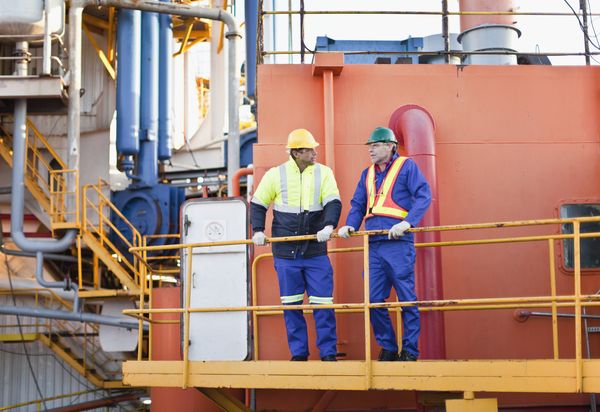Asking three different people, “What does it mean to work offshore?” may yield three different answers.
For many people in the greater Houston area, offshore work means working on a vessel, dry dock, or oil and gas rig in the waters of the Gulf of Mexico off the Texas shore.
Havens & Associates represents the interests of workers in all capacities. But today, we’re focusing on what offshore work means and the rights that workers injured in these lines of employment enjoy.
If your job is one of these and you’ve gotten hurt, you have a strong legal team ready to hear your story and take action. Contact us today to have your claim reviewed by a Houston offshore accident attorney.

What does it mean to work offshore?
In oil, gas, shipping, and transportation, offshore work includes any activity or operation at sea, including inland seas connected to oceans or bays like Galveston Bay or Trinity Bay.
Common offshore jobs that fall under this umbrella include:
- Working on oil and gas rigs
- Transporting workers or supplies to and from ships or rigs
- Work aboard a commercial vessel, such as one used for transportation or trade
- Marine surveyors or engineers
In some cases, longshoremen and dockworkers may also be considered to be working offshore. Understanding what offshore work is makes a difference in which laws may apply should you be injured on the job.
Common workplace injuries suffered by offshore workers
Although the tasks performed by offshore rig employees and commercial shipping employees may vary widely, the injuries these people suffer are often similar, including:
- Slip-and-fall injuries result in sprains and strains, neck, back, and spine injuries, head trauma, brain injuries, or broken limbs. In the worst cases, someone may slip and fall into the water.
- Strains and sprains from lifting heavy objects or repetitive motion lifting. Back injuries are common, even when proper lifting techniques are used.
- Struck-by injuries are very common on rigs and vessels with swinging lines, tethered objects, and other heavy equipment. These can cause head, neck, and back injuries and sometimes pitch someone overboard.
- Caught-by injuries, where the victim may suffer crushing injury or involuntary amputation.
- Burn injuries come from fires, caustic chemicals, steam from releasing gas on an oil rig, or touching hot objects.
Your rights after suffering an offshore work injury
Traditional workers’ compensation insurance does not usually cover workers injured in offshore work. Workers’ compensation provides benefits like medical and rehabilitative care and a wage replacement while the injured worker is out healing.
Instead, U.S. maritime laws such as the Jones Act and Maintenance and Cure cover most offshore workers. These laws allow workers to sue a negligent employer who permitted unsafe conditions to persist and demand compensation to cover their injuries and losses.
Securing your benefits under these laws may be more complicated than filing a workers’ compensation claim. An attorney who understands these laws can help injured workers assert their rights and understand the full scope of benefits or compensation.
Have you been injured in your offshore job? Let us help you
If you’ve been hurt in a workplace accident offshore, let the Havens & Associates legal team help you demand full and fair compensation for your losses.
Contact our firm today at (713) 955-2215 for a free consultation.